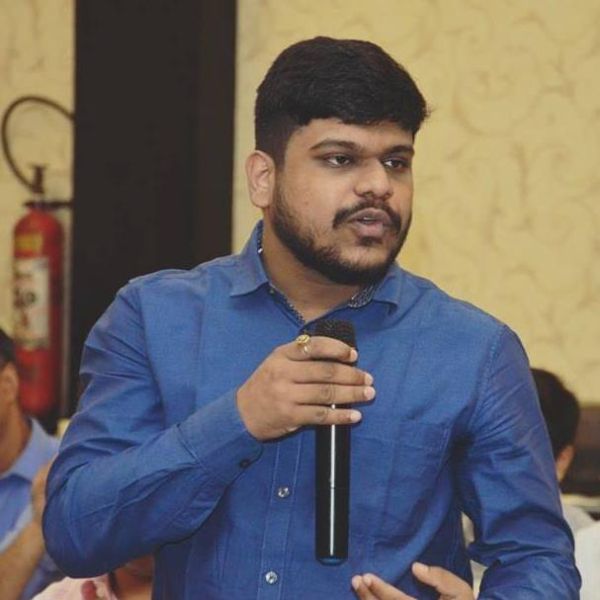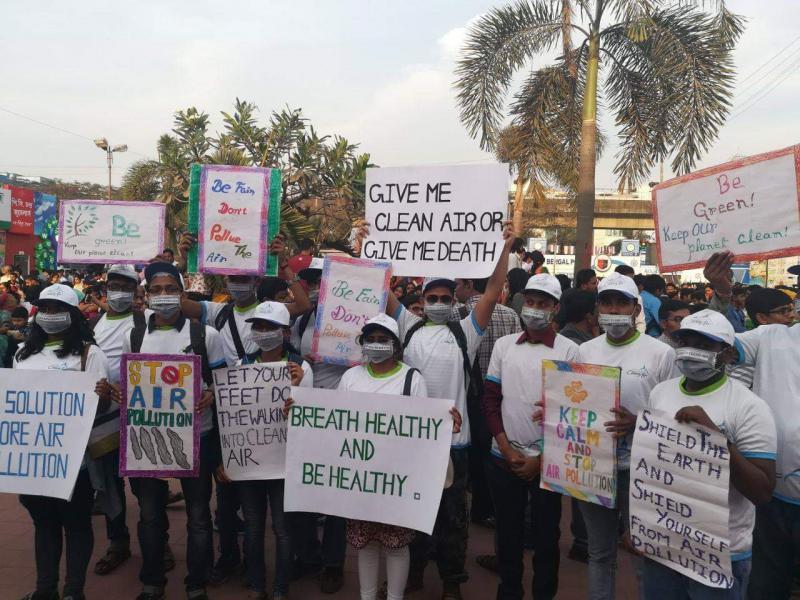Image

2021 EE 30 Under 30 Changemaker Grant Project
Empower Rural Women Leaders for Climate Action
Rural populations and most particularly women in rural India have greater vulnerability to the impacts of environmental degradation and climate change. They also have different perspectives, concerns, and ideas for change. For environmental sustainability and to develop climate resilience, this project aims to train elected women leaders at the grassroots level with knowledge about and tools to address prevailing environmental concerns, to equip them to make informed decisions for their communities and even integrate climate actions into the annual plans of the local government where these women are leaders.
**********
EE 30 Under 30 Biography
Kolkata, India
Age: 29
Ajay is a passionate youth leader on a mission to educate the masses about air pollution, climate change, and sustainability.
Tell us about yourself!
I currently lead Kolkata Clean Air, a citizen- and community-led initiative that works to address the issue of air pollution in Kolkata. In a very short time span, Kolkata Clean Air has become a leading initiative for environmental action in the city and now engages a network of over 30 organizations and thousands of citizens. My role involves community awareness and education through various forms of engagement such as events, workshops, campaigns, theater, and more. My role also involves visiting schools and colleges to deliver sessions on climate change and sustainability. I am also a member of the Global Shapers Community (an initiative of the World Economic Forum) and am a trained Climate Reality Leader.

What inspired you to become a champion for environmental education?
Over the past few years, I realized the link between the environment, poverty, and severe health issues. I strongly believe addressing climate change is the most important thing we can do, and education will play a very key role as this is a fight we cannot win alone. We all win or lose together. Education is the only way to build more awareness and imbibe a sense of consciousness amongst everyone to be more responsible in their daily actions and it impact on the planet.
What advice would you give to the next generation of leaders that are looking to bring about positive change in their communities through EE?
Never lose an opportunity to build awareness and educate people and don’t focus on the scary, negative images of climate change. We need to build hope and enable people with tools and solutions to be part of the change. Everyone cares, we just need to involve them.
What keeps you motivated, inspired, or hopeful for the future?
We live in a world where we have built technology and solutions that have the possibility to bring about change at a scale that was never before possible. The young people today have a strong drive to seek purpose and meaning in their lives. I feel optimistic, in spite of all the science telling us we have reached a point of no return. Talking to young people in schools and colleges during my presentations gives me hope that they will commit to take action. I believe our future is in safe hands.

What pro-environmental behavior do you think would make a big impact if everyone in the world started doing it?
I strongly believe that we need to not just teach people specific ideas or actions, but rather establish awareness about our connections with the environment and how strongly we coexist. We need everyone to consciously, with every breath, remember that every breath is a transaction with a tree outside. What we exhale they inhale, and what we inhale comes from them. People need to be conscious about their daily actions and their impact on the planet. Don’t make everyone pay for your choice – what you choose for yourself is your business, but you have no right to make everyone pay for the consequences.
It is very powerful when we all collectively realize the impact of our actions, and then specific actions for the environment become more feasible.